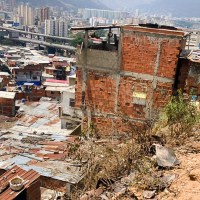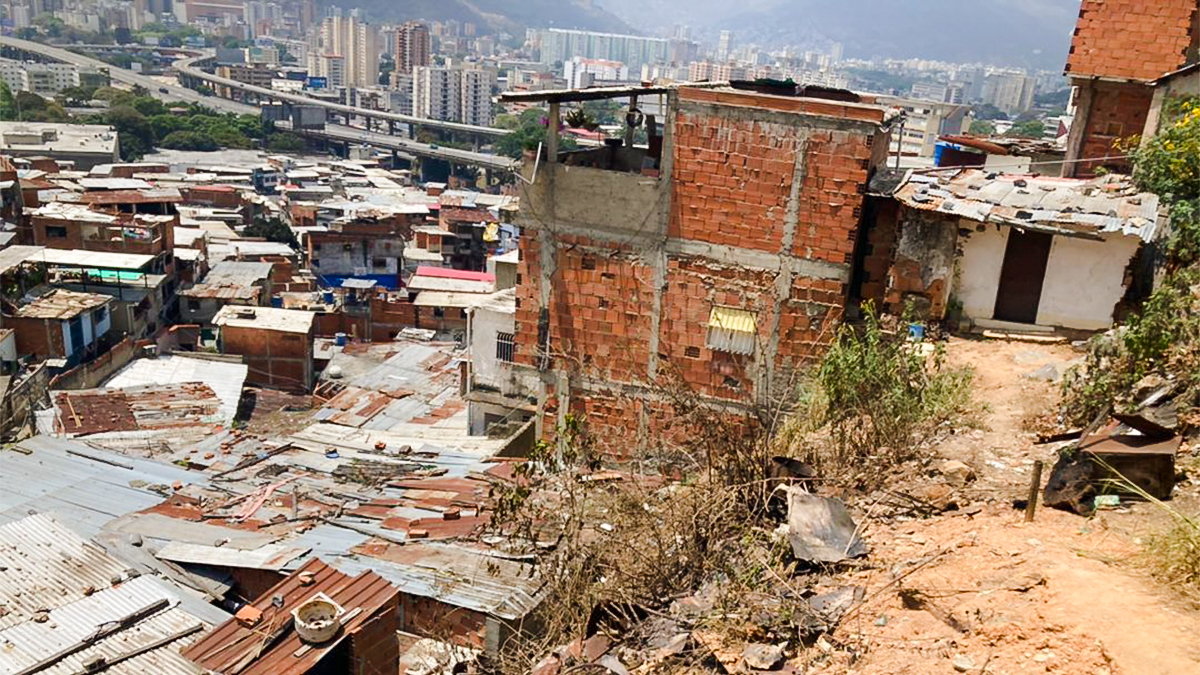Across the urban landscape, an invisible line separates the formal city from the homegrown settlements scaling the Venezuelan mountainside. In these Capital District settlements, community ties are strong. People rely on one another to improve their living conditions, especially when it comes to building or repairing homes, getting sewage lines installed, or paving streets.
Galvanizing much of this activity are the community leaders, men and women who have earned local trust by rolling up their sleeves and helping out when and where they can. They organize volunteers for neighborhood projects, drive sick children to the hospital on their motorcycles, feed their neighbors, open their homes to unhoused people, fight for others to receive care in medical centers, and run improvised sports schools. They do these things, not for money, but because they can. You’ve met some of these community leaders when you taught them how to mentor the entrepreneurs you’ve invested in through our jobs creation program.
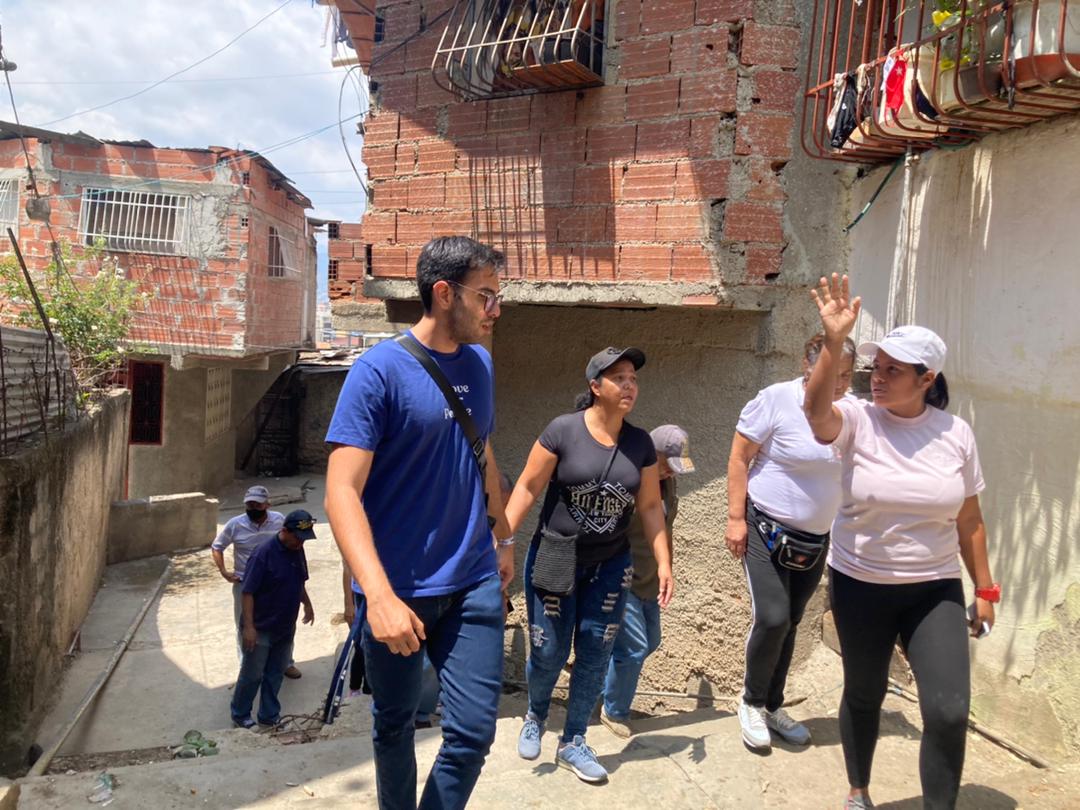
We’re proud of the relationship we’ve built with the community leaders in the Capital District settlement of La Silla because it took time. When another organization familiar with our work introduced us to the community in late 2021, they viewed us as as another organization coming to take advantage under the guise of helping. We had to build trust.
Listening Seeds Trust
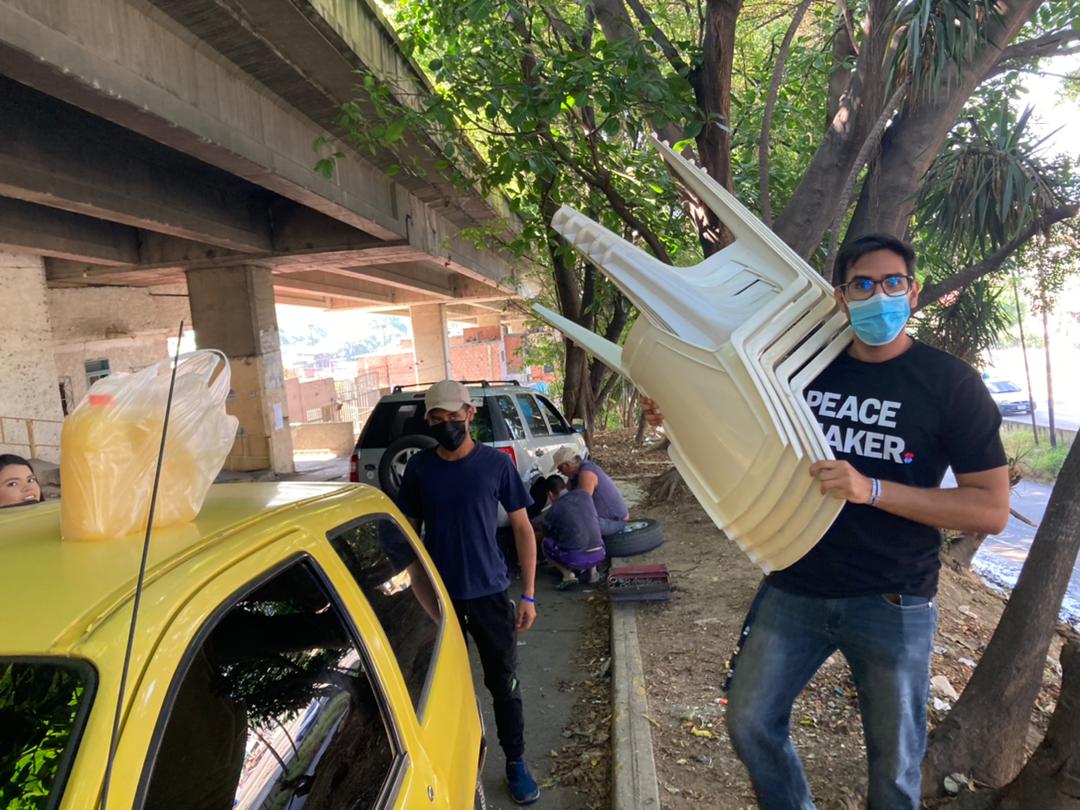
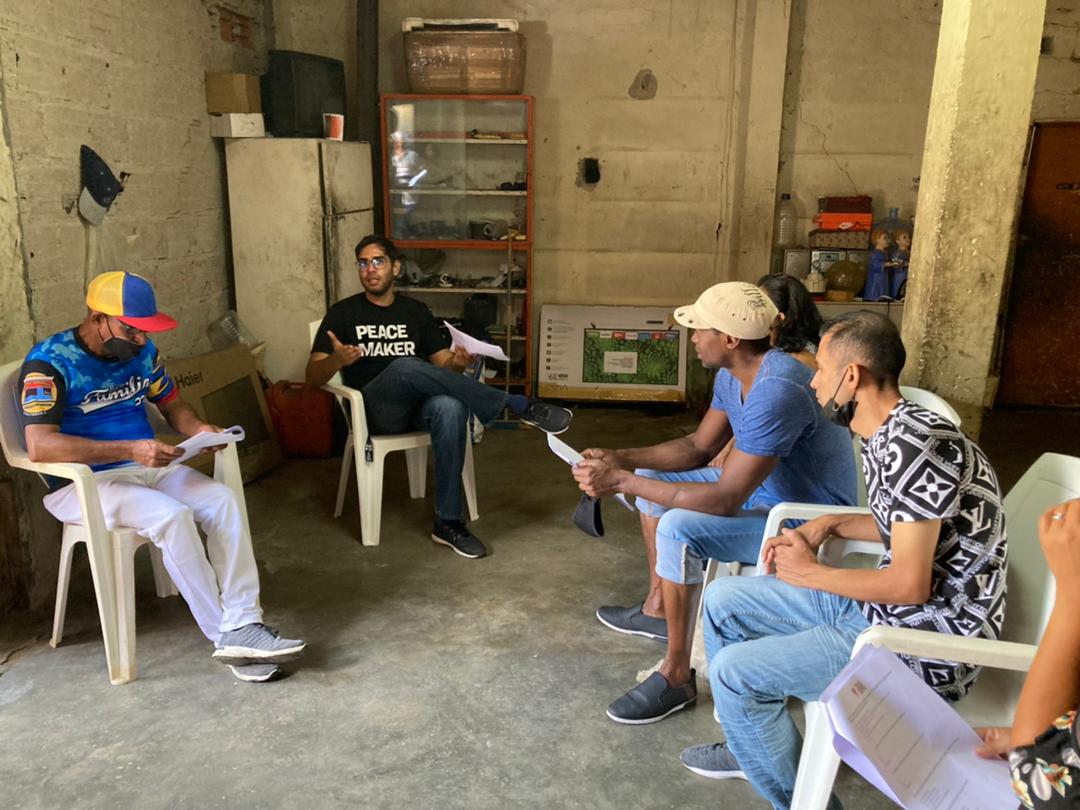
We started visiting the community regularly to discover their needs. Initially, we thought we might start an education project because schools were still closed when we arrived. A community leader was teaching children out of a small space she created in her family home. Trusting that people know what they need, we designed an assessment tool instead. The assessment asked how many days a week they received water, how many times a day they ate protein, and if they had reliable access to the internet. Instead of administering the assessment ourselves, the community leaders gathered volunteers. We asked for ten volunteers, but 15 showed up, all community leaders. When we shared the results, trust took root.
Nurturing Trust
Nothing fosters trust like shared success. We decided to run a small project in the community so the community leaders would know they could count on us.
The leaders had told us they wanted to bring some medical care into the settlement. Working together, we organized a community health day. The community leaders coordinated logistics, arranging for vulnerable families to get check-ups from our partners’ medical teams, whom we brought into the community. If patients needed follow-up care, our community of peacemakers arranged for them to go to a private health facility. Your help was crucial as Venezuela’s public health care system was decimated by the economic crisis.
Having conversations builds relationships. Having uncomfortable conversations builds trust. We talked about broken promises and agency while we discussed the results of the needs assessment. Although the community needs food, medical services, and infrastructure repairs/improvements, the leaders chose a home infrastructure project because they want any project to empower local people instead of creating a dependency.
The infrastructure project aims to rebuild roofs for the houses that people in the community have built for themselves. We focused on the roofs because they are made of zinc and are therefore fragile. Zinc is a popular local building material because it is lightweight and easy to transport.
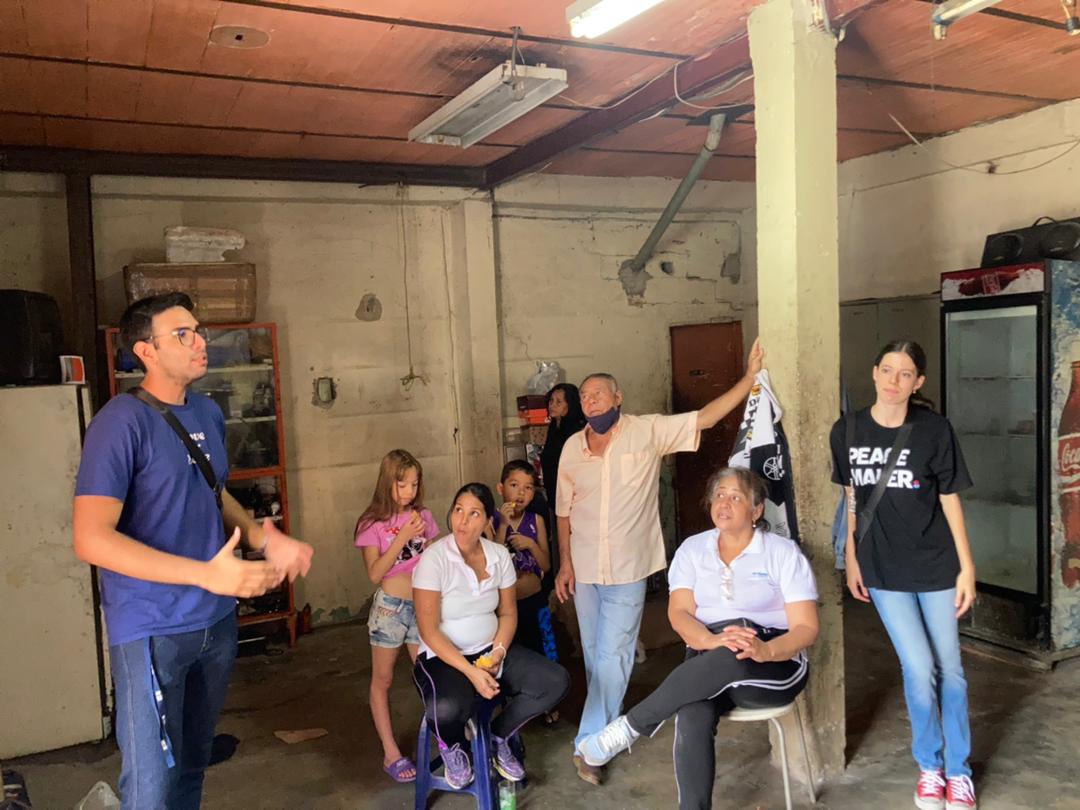
Implementing Trust
Whereas the community leaders wanted the final say on decisions, we required the project to have an implementing partner who had expertise in building infrastructure that complied with international standards. Working with a partner made the project more expensive, which reduced the number of houses we could support. It meant that all the due diligence would be carried out to ensure safety. This also made the community reluctant to use a partner.
We listened to what the community had to say and offered a solution. The families whose houses were to be repaired would receive training on safe construction and how to repurpose waste materials. Although fewer families will have their homes improved, the community as a whole is gaining valuable knowledge about home construction and waste management. This project is divided into three phases, in which 13 roofs will be built per phase. At the end of each phase, the community will also be trained to cope with infrastructure disasters.
Right now, the community leaders are deciding on which families to help first. They are considering factors most of us take for granted: how many people in a home have a job, how many children live there, whose house is most vulnerable? Thanks to you, soon, 39 families will have one less need to worry about. While you’re rebuilding roofs, we’ll be leaning in and continuing to listen to the goals and aspirations of La Silla.

